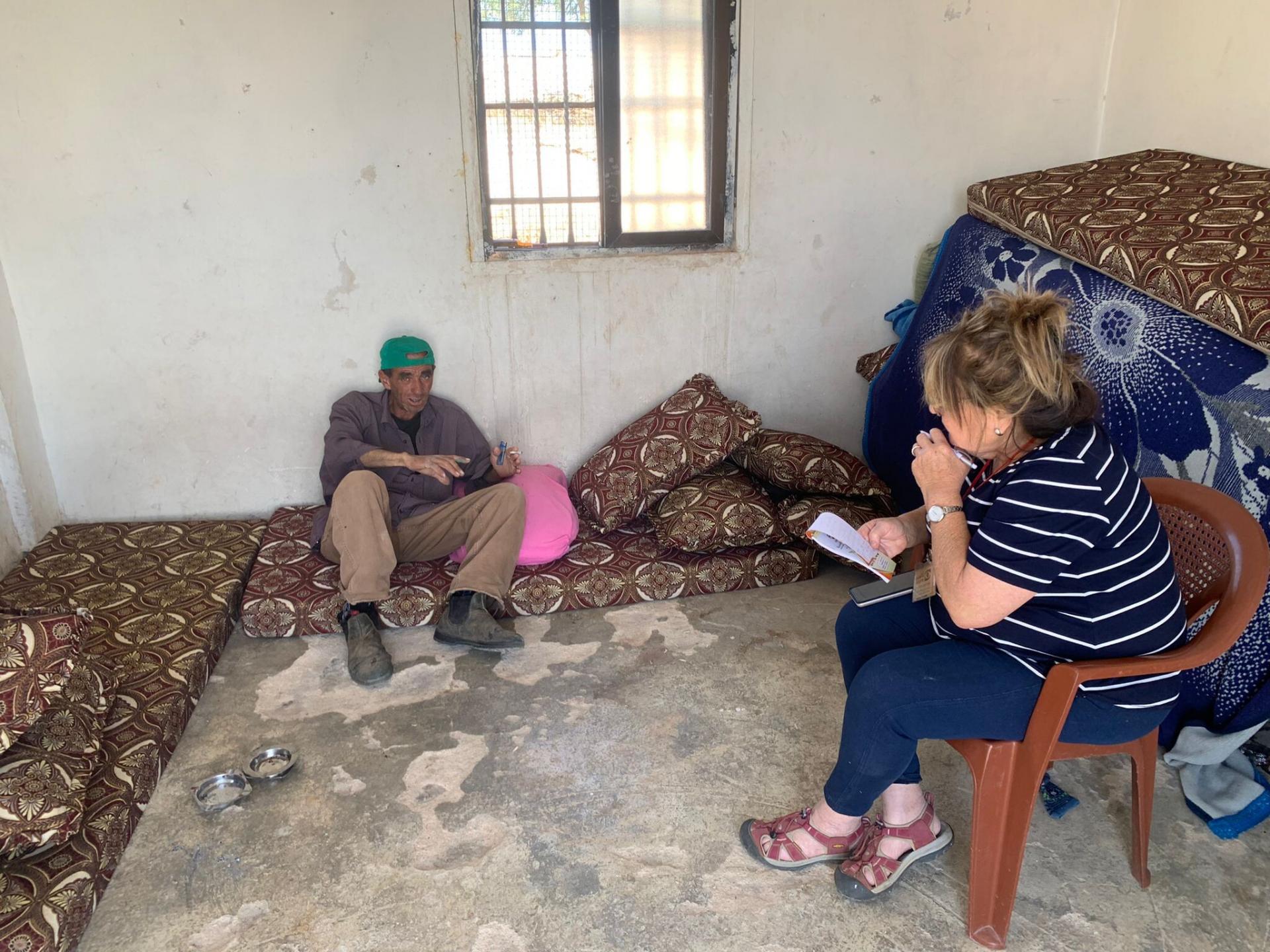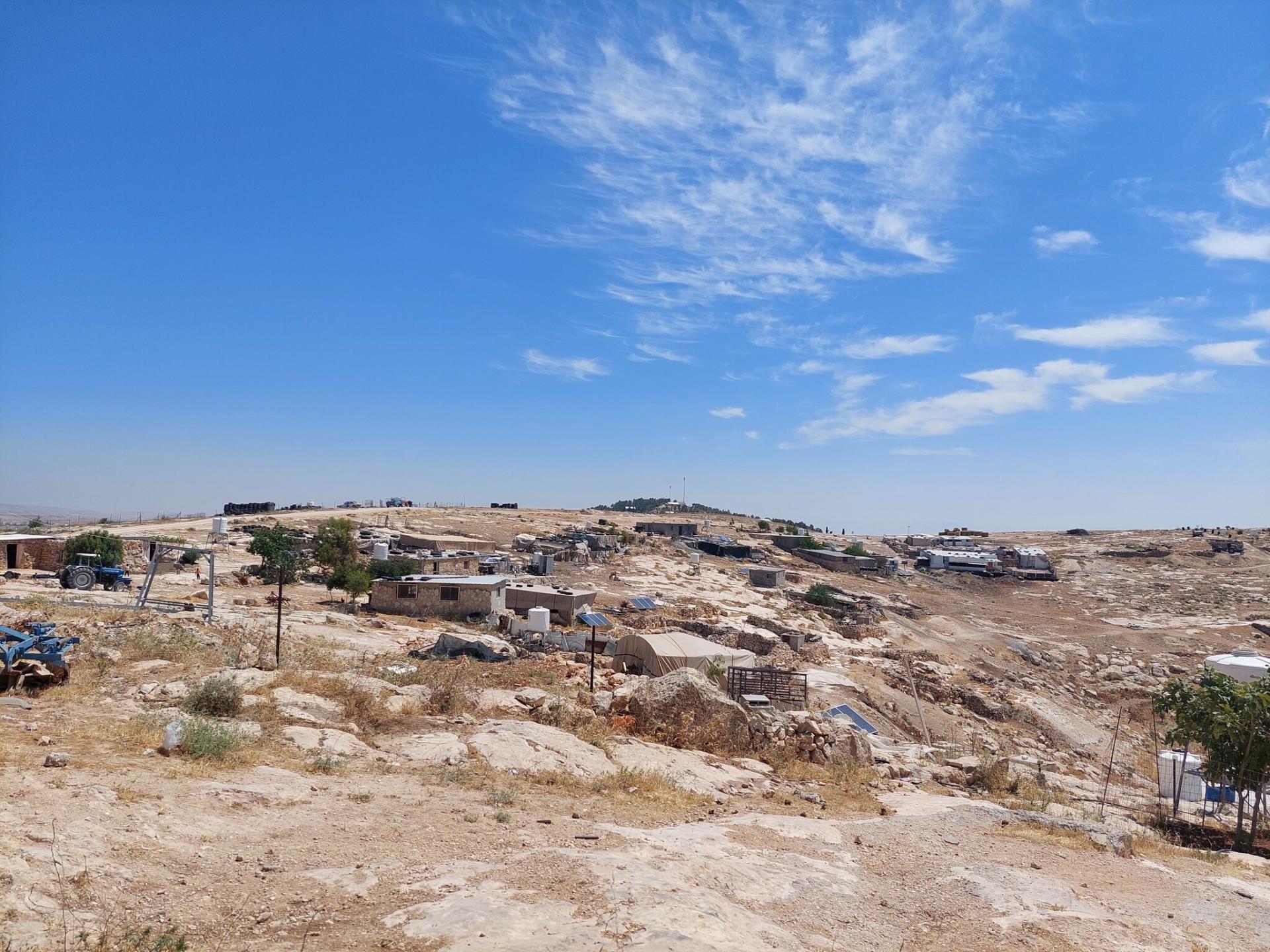Mufakara - coordination between soldiers and settlers
Michal Tsadik and Muhammad; Translator: Natanya
Umfakara in Masafar Yatta
Although the area is well known to us, it was important for me to understand exactly what the size of the area to be evacuated is.
On Saturday there was a violent demonstration as the settlers attacked the demonstrators. The army blocked and made it difficult to access the area. Tear gas grenades were thrown at the demonstrators including the MachsomWatch members who took part in the demonstration.
From Umfakara you can see Mitzpe Abigail on the left. Opposite the valley, At-tuwani, next to A-Rakiz and above them on the hill, Havat Maon. To the right is Khalat ad-Daba’, and behind us, west of Mitzpe Yair.
In other words, the area is full of small Palestinian villages, and in recent years the settlers have clung to them, in illegal and violent outposts which make life miserable for the Palestinians. They harass the shepherds and their flocks; they make movement difficult and do not allow them to come to cultivate their fields and vineyards.
Fadel recounts their difficult lives in recent months. Days before we arrived, the police were called by the settlers. The policemen arrived, opened a computer, looked at their maps and told him that the area was really his, and he could not be deported. When the policemen left, the soldiers and settlers arrived. Then he went home, and they went too.
Fadel's story: I have 40 acres of wheat and pasture fields for sheep. I can not reach my fields. I am only allowed to reach a tanker stationed by the army. If I pass it, the settlers will come and drive me away. A caravan has been set up for soldiers, a kilometer from my house, and this is the border.
He said there is one female soldier who behaves worse, more violently, loudly and nervously than the settlers. She really tried to catch him physically, threatened him with her weapon and shouted at him. There are 5 female soldiers here, he says, and they usually stand at the side. Only one is very aggressive. She also shouted at the children, and wanted to expel them from the pasture.
He turned to her and asked why she was shouting at the children. She replied: Get out of here, this is a closed military area. He asked her to see the written order. So they showed him something on the computer in Hebrew, which he does not read. No paper in the language that he could read was presented to him.
Another story: One day they brought a dog and set it on the sheep. And the soldiers? Did nothing of course.
And even when the soldiers do act, they expel him. A few days ago, when it happened, he ran and fell, breaking 2 ribs. The doctor said it would heal on its own, over time, but in the meantime he was in pain.
At-Tuwani
We met Ali Awad from Umm Tuba and with him were people from Germany. They say they came to coordinate a tour of representatives from the Social Democratic Party. The tour is planned in a few days. We will try to coordinate and join.
Ali Awad says that the situation is very tense and difficult. Because of the transfer threats hanging over Ali, the settlers increasingly dare to abuse anyone whom they can.


